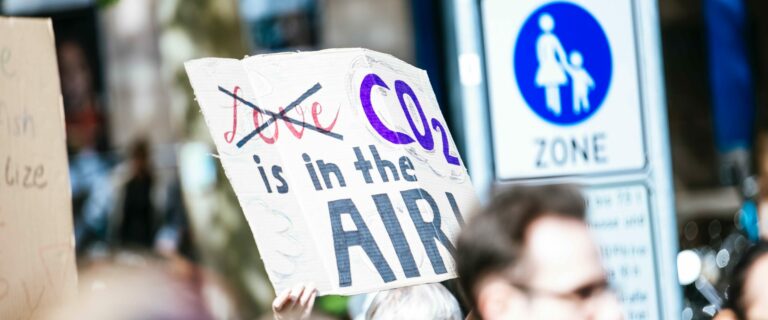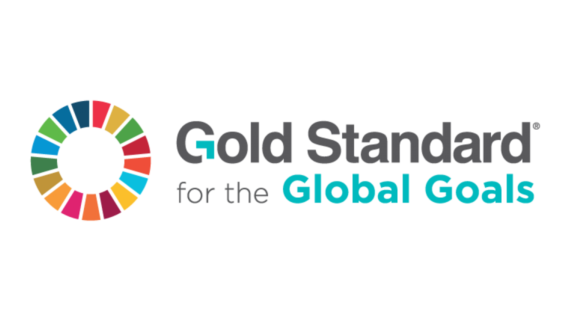

8. April 2022
Julia Kriegel
CO2 labels have become increasingly present in recent years to prove companies’ efforts in sustainability. Whether in the press, in supermarket shelves or on company websites – sustainability is everywhere.
Today one can read about CO2 neutrality, the reduction of the CO2 footprint or CO2 compensation everywhere – it seems to be part of our everyday language and can be found on certifications and corresponding “CO2 labels”, which are then presented in corporate communications, offline advertising or on the internet.
But what is the actual promise behind these CO2 labels?
And how is it possible to say with certainty that a company is really serious about climate neutrality?
A bit of research brings up questionable practices, like simple reforestation instead of really sustainability measures, and an immensely growing market for carbon emission offsets. Although sustainability is more than carbon neutrality and waste reduction – and so important as a meaningful economic responsibility – greenwashing seems to be not only common today, but also a more or less accepted business model.
Let’s take a look at what “climate neutral” actually means: a balance between a company’s carbon emissions and the absorption or saving of carbon. Yet, how do providers of CO2 certification and labels help to achieve this balance? In the case of many “labels” and certificates, the “how” is not really transparent, and the path to certified climate neutrality is a matter between the client (company) and the contractor (certifier). Our sustainability manager Julia looked at the topic of “CO2 labels on consumer goods” for her Master Thesis – one of the results being that such labels and certificates do not always deliver what they promise. Plus: in terms of traceability and comparability, they should be more strictly controlled by politics and issued to companies through clear specifications.
Hence a companies‘ “CO2 neutral” label can be deceiving, as to date there is no legal basis for CO2 labels which are just based on carbon offsetting. Companies can „buy“ labels without change of the real emission drivers in supply chains or through evolving production conditions. CO2 certifications are supposed to prove CO2 compensation, reduction and offsetting of the corporate world – but how can consumers know for sure?
Today carbon offsetting is most commonly known when booking personal travels or flights. It is also the most common and quickest way to a “green” certificate for companies. Even though CO2 neutrality is hardly possible today without offsetting, there are big differences: from meaningful support of verifiable projects to greenwashing.
Hence, without a standardized, verifiable sense of purpose, CO2 labels cannot be proof that a company or product is sustainable. They show a company‘s support of social or environmental projects with the help of monetary transactions – in the sense of compensation for non-sustainable behavior. Such compensation without transparent verification of the label, and without initiating change within a company, has to be labeled ‘greenwashing’ and it is no real contribution to solving our most urgent problem of non-sustainable business.

Identify and reduce first, offset second. By “buying” and marketing certificates, the emissions emitted by companies are not disappearing. So what do we have to consider when offsetting CO2?
Every company causes CO2 emissions – “Scope 1, 2 and 3 emissions” – which can be directly or indirectly be related to the company and its activities.
In order to balance the relevant scopes, all relevant emissions and the corporate behavior have to be recorded and evaluated. The goal must be to identify levers and potential savings and to set starting points for change. By making changes to the company’s processes such as in its own supply chain, service or production, avoidable emissions can be reduced –
Those emissions that cannot be avoided can be offset by purchasing appropriate (climate) certificates.
Another important aspect for the classification of a company’s emission measurement and balancing must be current scientific data. The requirements of the 2016 Paris Climate Agreement and, for example, the annual publications of the IPCC set science-based climate targets, which are continuously evolving. It is also crucial that the goals of the globally targeted climate transformation are also directly anchored in companies.
Climate neutrality and truly sustainable business therefore means more than just buying a pretty, “green” label. Among other things, the question remains: how do we as an organization find a suitable, trustworthy partners to support our own climate transformation?
The good thing is that the topic is becoming increasingly relevant for all of us. As a result, there is now a large number of partners in the “market”. Some have been active for years and, despite tough climate policies, have built up functional and truly sustainable climate protection projects – they can thus be partners with real expertise in the field. For these CO2 compensation projects, there are now various standards that must be met.
To ensure the environmental and social sustainability of climate protecting projects, the World Wide Fund For Nature (WWF) for example, developed the so-called ‘Gold Standard’. Because the criteria go further than other common standards for climate protection projects, Gold Standard projects are also internationally recognized: these certifications can significantly increase the market value of emission reductions and thus CO2 certificates. Companies that generate or purchase certificates from Gold Standard projects thus demonstrate a corporate sense of responsibility for people and the environment.
VAST FORWARD will also not be able to avoid offsetting as part of the VAST GREEN implementation – at least that is what we assume today. Why? Because we cannot bring certain emissions to zero, not without risking or losing our business. It is important to us that our approach starts where change must start: with ourselves, and that is why the entire VAST FORWARD team is actively involved in the implementation process of our strategy. Therefore we start change within our company first, then we think about compensating – that’s what we call:
We Do Not Just Compensate!

For more information, visit the Germany Environment Agency’s (UBA) website for the guidebook “Voluntary CO2 offsetting through climate protection projects“, which can be used to evaluate providers. The Federal Association of Green Business (BNW) also offers a recommendable overview of possible partners: “CO2 Compensation – but how? And with whom?””CO2 Compensation – but how? And with whom?”
Quarks, October 2021:
Quarks Daily Spezial Folge 18 – Mogelpackung “klimaneutral“?
PLAN A: What are scope 1,2, 3 emissions?:
What are Scopes 1, 2 and 3 of Carbon Emissions? – Plan A Academy